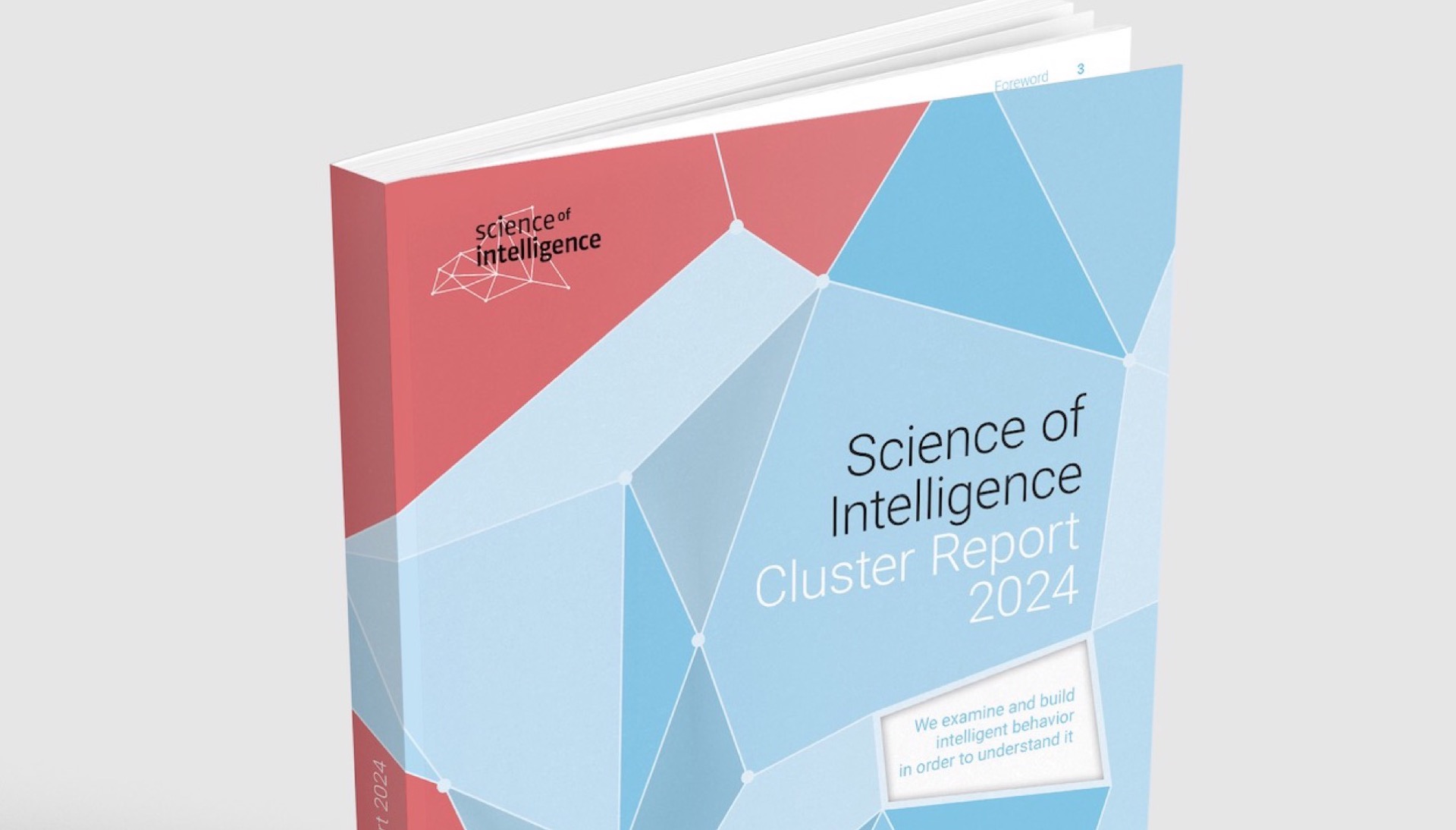Hot off the press: The Science of Intelligence Cluster Report 2024
Did you know that ice-fishing competitions in Finland are a great way for scientists to understand how collective foraging works? Or that cockatoo behavior can help robots learn to open lockboxes? Why do marlins change color when hunting sardines? And how can we overcome the most common AI fears? Intelligence research is a fascinating topic and raises lots of questions: read about all this and much more in the Science of Intelligence Cluster Report 2024.
› Click here for the interactive flipbook →
We are excited to announce that our Science of Intelligence Cluster Report 2024 has now been released! Flip through 140 pages of stories, interviews, illustrations, and visualizations that recount our most important research accomplishments, from biological behavior to artificial intelligence, as well as our events, activities, podcasts, and press coverage.
“The notion of intelligence for us encompasses all the awe-inspiring things that animals, including humans, are capable of,” says spokesperson Oliver Brock in the foreword. “Their surprising survival skills, the ingenuity in solving new problems seemingly with ease, and the adaptability to changing environmental conditions. The artificial intelligences created so far do not come close to what evolution has done in the realm of biological species. But we believe that a better understanding of biological intelligence will also allow us to create better artificial intelligences.”
This volume, which also comes in a print version, is the result of months of interviews, meetings, talks, and photo shoots that involved all of our researchers at varying degrees. Getting them together in different contexts helped us outline stories about the different SCIoI projects, but in some cases it also helped the scientists better realize what their disciplines have in common with the others’, and how they differ. This is testimony of how science communication isn’t just meant for its audiences but also for the scientists themselves, who learn to see their research from different perspectives, sometimes gathering new ideas for collaborations with others.





